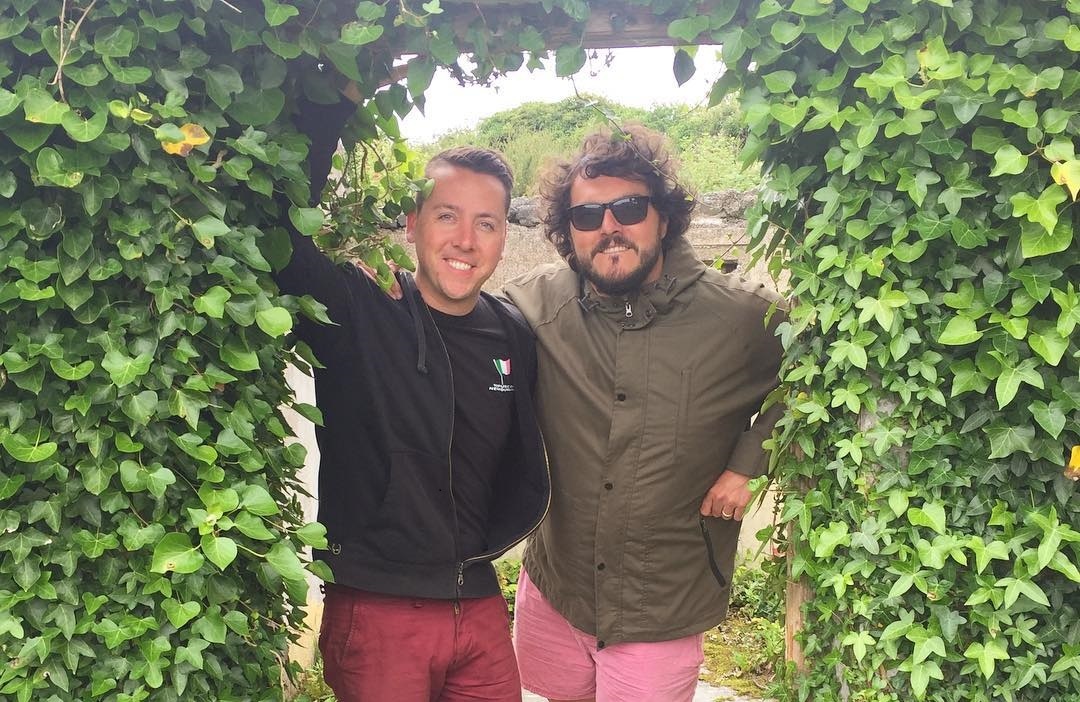In June we picked up our things from living in a small town in Newfoundland, Canada and made the move to Dublin. As with many of our adventures (Moving to Australia, buying a house, getting married, etc etc) we did absolutely no planning and just threw ourselves head first into a new challenge fuelled only by naivety and positive thinking that things will. Just. Work. Out.
But this time… did it?
Life Update
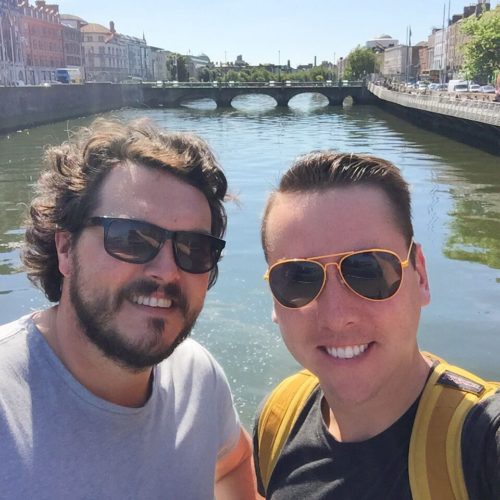
After 4 months we are finally able to give the update that we are fully settled into life here in Dublin! We will start by saying that we have come to confirm what we had already hoped, that Dublin and Ireland is an absolutely amazing place filled with equally amazing people. It has even far outweighed our expectations which is fantastic and we’ll be sharing all the reasons why we love Ireland for hopefully years to come.
But it definitely wasn’t easy. Unlike our last move to Australia where we got a visa online in like 24 hours, moved there and were able to get bank accounts and get paid by our jobs without even thinking twice, Ireland hasn’t been quite so easy.
Ireland is part of a very complex political and financial system and diverse society that is the European Union and Eurasia in general. This has led to what is a highly bureaucratic system built to prevent fraud at every turn which means application requirements for anything are far more complex. And of course this makes sense and in experiencing it, was our first wake-up call to just how naïve we were to automatically assume that getting set up would require little to no effort like we have seen elsewhere.
So whether you’re thinking of making the move to Dublin or are just curious, let’s give you the rundown on what you need to know to make the smoothest transition into Dublin life.
1. Work Visas
Like in Australia, Ireland and many western countries, working holiday visas are available to many world citizens up to an age limit of 30-36, where you can easily get a visa to move to and work in a country for usually 1-2 years. And they are amazing opportunities for anyone to get the time to fully explore and experience the culture of another country.
Lucky for us, Canadians can move to Ireland up to the age of 36! We thought we were past the 30 year mark on these but in fact Canada is one of few countries to get special extensions in age and length of visa for many countries especially across Europe. The visa is good for up to 2 years and there are no limitations on how long you can work at one company. This is fantastic and actually makes things easier than when in Australia where the visa is good for one year and you are limited to work at one company for a maximum of 6 months unless you can get a 4 year sponsorship.
More info here. You mail off your application to the Irish Embassy in Ottawa and usually within 3 weeks you will receive your approval letters and documents. And approval is pretty much always guaranteed unless a serious criminal record comes into play.
Great! Now if you want you can take your time and spend time planning jobs, living arrangements, etc, but we just straight up moved immediately. #LivingOnTheEdge AKA #BeingResponsible?Pffftt
2. Finding a Job
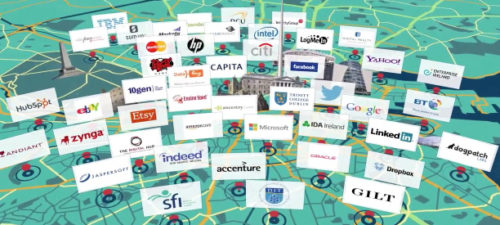
Most sensible people change continents and countries knowing they already have a source of income to live off of. However we of course, are not that kind of sensible.
Though we had initial chats with recruiters before we moved here to make sure the market was growing and potential was high, most of our job searching was done from Dublin. LinkedIn Jobs, Reed.co.uk, Jobs.ie, or ie.indeed.com are great places to search and start setting up interviews. But Dublin is also a major worldwide hub for tech giants like Airbnb, Facebook, Google, LinkedIn, Amazon, Microsoft, Twitter and many more because of the major corporate tax rates available here so there are lots of opportunities to apply direct as well.
Done and dusted. We got jobs!!
3. Being Eligible to Work
When you get to Ireland though you still can’t just start working. You need to book a time to register with Irish Immigration to get your GNIB card. Booking a time in can take anywhere from a few days to a few weeks depending on season. You’ll want to get this done right away so it doesn’t delay you.
Ok. Now the next few bits are where things started to get complicated.
You then need a Personal Public Service (PPS) Number which is the same as Canada’s Social Insurance Number (SIN) of course and both work as your tax file numbers. So in Australia, when we started working our companies just got us our tax numbers and that was it. Never even had to think about it.
But in Ireland, you can’t get a PPS number without a job contract.
You can’t get a PPS number without an address. Proof of which is either a bill with your name on it, an apartment lease, or a letter from a relative or landlord saying you live there.
In manycircumstances you don’t usually have a semi-permanent address until you’ve gotten paid.
But you can’t start working to get paid until you’ve gotten the PPS number.
Ok. So this is the balancing challenge.
So we were super lucky and had already gotten a short term 3 month apartment lease to use. But we’ll talk getting an apartment later in this post.
You need to book in your PPS number application meeting. You can check for available times each day, they fill up fast and can take weeks to get a spot in so keep checking back to get the earliest times.
From the interview, within 10 days you’ll receive your approval letter and your PPS card.
Great. Next.
4. Getting a Bank Account
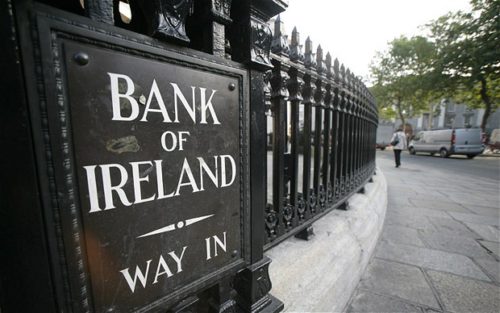
This was another complicated piece of the overall process but we found out it doesn’t have to be.
We called every major bank in Ireland, and no matter what we told them about our situation, every one of them said the same thing. They would not under any circumstance provide us a bank account without proof of local address. (We learned later this isn’t true but give us a second). None of our friends had ever heard of any other option either.
The banks also don’t take leases as proof of address. And even though the letters you get as approval for your PPS number are from the Irish government confirming your address, they aren’t government ENOUGH (???). So you’ll be told you need to register with the taxation office at Revenue.ie, and then you can get a letter within a few weeks with a password to your account which you can use as your address. But depending on how you registered, you might not get a letter at all which isn’t clear. So this just ended up being a massive mess that we won’t get into.
BUT WE CAN HELP YOU!!!
You can skip the whole issue by getting your account set up as early as BEFORE YOU MOVE! The customer service reps at Bank of Ireland we spoke to didn’t seem to know about this but they offer Non-Resident Accounts. Accounts for foreigners or lapsed Irish nationals that you can get set up using your PAST addresses and info from your home country. Halle-Frickin-Lujah!! We found this out too late, but this is a must do for anyone moving here.
With all the above processes, especially if not aware of Non-Resident bank accounts, from what we have been told it is far too common for first time workers to be delayed being paid by up to 2, 3 for some even 4 months. You usually get paid monthly in Ireland so it’s easy to miss cut off dates that get your pay delayed by at least a month. And pay delays are definitely not ideal especially for those moving to Ireland with only Canadian and Australian dollars in the bank…on credit. So be financially prepared as a back up!
5. The City
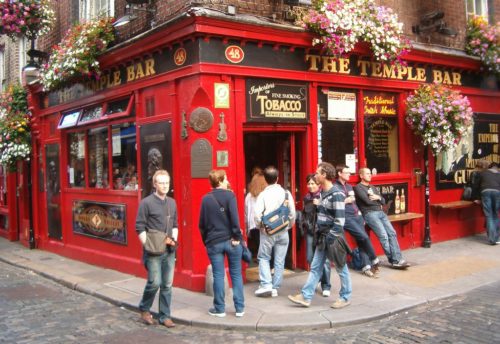
Dublin is an incredibly central city where all roads and concentration of population increasingly lead to a very vibrant city-centre made up of attractions, cultural performance centres, tourist spots, parks, shopping centres, restaurant and bar districts and a whole lot more.
The pub culture here is amazing. There is an endless supply of incredibly styled venues, so many with live music and it’s not just traditional Irish/“Trad” music (Which is actually not that common). We’ll discuss Dublin as a tourist spot and what to see in another post.
People complain about the weather in Ireland, but to be honest when you’ve grown up on a rock floating in the middle of the arctic flow in the Atlantic Ocean, there’s nowhere to go but up. So as Newfoundlanders, we find the weather here fantastic. Mild, rarely rains and even then only lightly so. Hoping to get some snow the winter but even that is unexpected.
For public transportation there’s the buses but there are also the short run trains/trams the LUAS and the DART which goes up and down the coast.
6. The People

As is widely believed Irish folk have been extremely accommodating and friendly, anything less would have been a disappointment especially to proud Newfoundlanders of Irish heritage. We’ll be sharing more of their stories and their insights into Irish life and the world like we did in getting their opinions of Canadians on Canada Day.
One of our next installments: How to best fit into Irish life?
7. Finding an Apartment
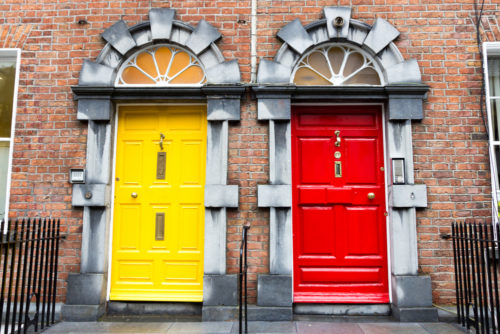
Another challenge everyone faces. Over the last decade a massive sea of tech giants and start ups have boomed into Dublin bringing a massive swell of new staff and housing needs that the city has not been able to keep up with. So finding an apartment is incredibly competitive.
Here’s what you need to know.
First of all, location. Generally the highest concentration of new residents that move to Dublin from away usually work at one of the tech or media giants or at the very least a global network. As most of these companies are situated centre city, and because most new residents, like ourselves, want to be part of the hustle and bustle (and party) of a new city, we planned to live centrally. We also prefer to walk to work whenever possible which is what we were aiming for.
Most popular areas include south of the River Liffey in suburbs like Portebello, Ranelagh, Rathmines, Ring’s End, Ballsbridge, City Centre amongst a few others.
We also didn’t want to buy furniture as we don’t know long we will be here while we sort out long term visas. Luckily the MAJORITY of apartments in Dublin are already furnished especially if moving into a share-house.
In the short term we found a place for a 3 month lease while we confirmed jobs and bank accounts We shared a house with some fantastic locals and expats to intro us to the area.
The hardest part is finding a full lease especially if you want your own apartment. For a nice central place, regardless of how small it is, you’re looking at a range of 1200 – 1700 euros or more per month. Aiming for a studio will help keep costs to the lower end which was our target. As a single person, due to high cost, most people would look to rent a room in an apartment or house share.
Then the real problem begins. Getting accepted for an apartment. Here’s what we suggest from our own lessons learned:
- Set up email alerts on Daft.ie and MyHome.ie for the locations and price range you want. Apartments can be gone in mere hours or at the very least viewing appointments fill up immediately, so you need to be on the ball.
- Call or message, but primarily just CALL, the real estate agent immediately asking for a visit. If you’re lucky, 1 in 4 of these will result in an actual viewing. You’ve really gotta sell yourself in this part already. How great of tenants you’ll be, etc etc.
- Be on time for the viewing and get as much time speaking with the agent as you can to build a rapport.
- Have a template email on your phone ready to go with all your documentation, references information on yourself as a tenant etc. Send it to the agent while you’re WITH the agent. If you don’t send now odds are you’ve already lost the apartment once you’ve walked out the door.
- As hard as it is, if you see a place at a great price that you know is well within your budget, meets your needs and you know is a great deal compared to what you’ve seen elsewhere, don’t hold back, offer an increased rent even if only an extra 50 euros a month.
So Now You Live in Dublin
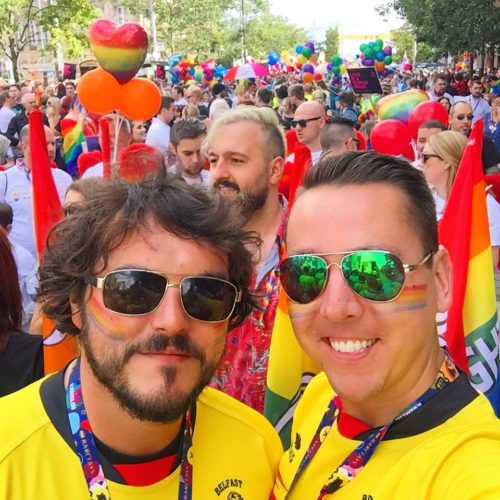
So now you’ve done it! And so did we! Seems so much easier once it’s all out of the way. But our advice will save you so much more time than we were able to.
Now the fun begins exploring the ins and outs of what it means to be an Irishman and we can’t wait! Much more to come so follow along below. And if you have any advice we’ll take it!!
Much love.
Chris and Larry
Follow us:
YouTube – Subscribe Here
Instagram – @GaysAroundTheBay
Email – Submit your email in the subscription box
Thanks guys!



